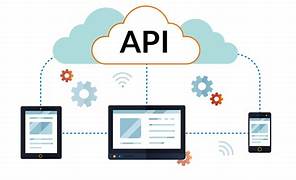The Role of APIs in Modern Software Development
APIs (Application Programming Interfaces) are central to modern software development, enabling teams to integrate external features into their products, including advanced third-party AI systems. For instance, you can use an API to allow users to generate 3D models from prompts on MatchboxXR.
The Rise of AI-Powered Applications
Many startups focus exclusively on AI, but often they are essentially wrappers around existing technologies like ChatGPT. These applications provide specialized user interfaces for interacting with OpenAI’s GPT models rather than developing new AI from scratch. Some branding might make it seem like they’re creating groundbreaking technology, when in reality, they’re leveraging pre-built AI solutions.
Solopreneur-Driven Wrappers
Large Language Models (LLMs) enable individuals and small teams to create lightweight apps and websites with AI features quickly. A quick search on Reddit reveals numerous small-scale startups offering:
- Chatbots for studying
- Chatbots for writing blogs
- Chatbots mimicking legal advice
Such features can often be built using ChatGPT or Gemini within minutes for free.
Well-Funded Ventures
Larger operations invest heavily in polished platforms but may allocate significant budgets to marketing and design. This raises questions about whether these ventures are also just sophisticated wrappers. Examples include:
- Friend: A wearable chatbot that mimics a friend
- Artisan: A virtual sales agent
- Elicit: A research paper analysis chatbot
While these products offer interesting functionalities, they often rely on APIs to interact with LLMs, which brings its own set of challenges.
The Impact of AI-First, API-Second Approaches
- API Bloat: Overreliance on poorly designed APIs can slow down products and impact scalability. Ignoring API throttling and treating third-party APIs like native code can lead to inefficiencies.
- Environmental Impact: AI’s current computational demands, similar to crypto mining, contribute to significant environmental concerns. Even with future space-based servers, it’s crucial to design AI models thoughtfully to mitigate ecological impacts, as noted by Nat Meysenburg.
- Lack of Nuance: Quick fixes using AI can be a blunt approach. Effective solutions often require thorough user research and problem framing, which can be overshadowed by the hype around AI.
Design Considerations
- Data as a Product: When developing software that relies on external AI, it’s essential to consider the user experience as much as the front-end. A well-designed API behavior can greatly enhance the quality of the user experience. Refer to the Data Delivery Checklist for detailed principles.
- Google’s AI Principles: When incorporating AI, adhere to principles like:
- Social benefit
- Avoiding unfair bias
- Ensuring safety
- Accountability
- Privacy by design
- Scientific excellence
- Ethical use
Looking Ahead
Developer Experience: As AI technologies like LLMs become mainstream, focusing on developer experience (DevEx) will be crucial. Good DevEx involves well-structured schemas, flexible functions, up-to-date documentation, and ample testing data.
Future Trends: The future of AI will likely involve more integrations. Imagine:
- A smart mirror detecting early signs of migraines
- Earbuds alerting officers to dangerous cortisol levels
- A bracelet tracking triggers for Cognitive Behavioral Therapy, with encrypted data for privacy
AI is powerful, but the real innovation lies in integrating hardware, data, and interactions effectively.













